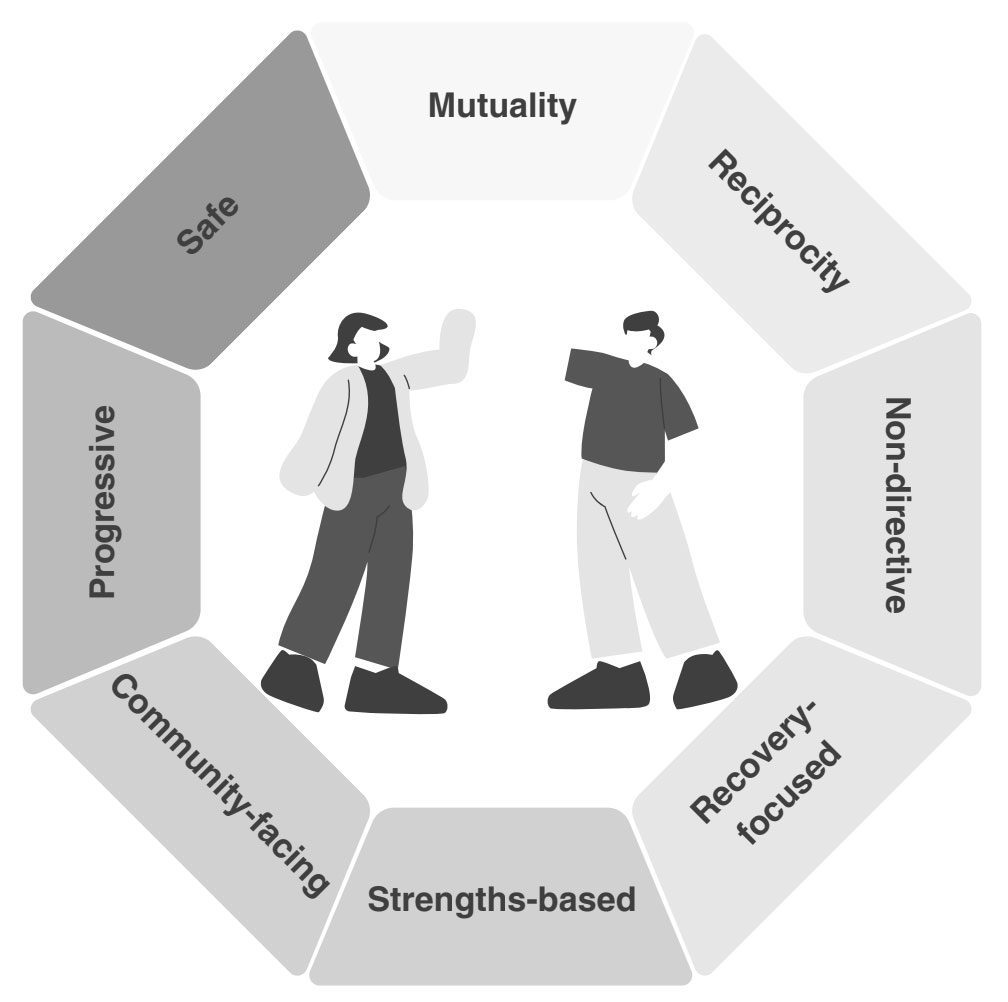Recovery-focused
Peer support engages in recovery-focused relationships by: Inspiring HOPE and belief that things will get better: they embody possibility and are in a position to say ‘I know you can do it’ to help generate personal belief, energy and commitment with the person they are supporting. Supporting people to take back CONTROL of their personal challenge, the way they understand, cope and manage them and define their own destiny. Facilitating access to OPPORTUNITIES that the person values, enabling them to participate in roles, relationships and activities in the communities of their choice.
Being recovery-focused means, we are seeing the whole person, their goals and ambitions, the language they like to use, and supporting them to heal from what has happened to them at their own pace in the ways that are meaningful to them and understanding that this looks different to everyone.
It doesn’t mean we are expecting anyone to ‘recover’ or that ‘recovery’ is the end goal, but journeying with someone and knowing that no journey is linear.
Creating a recovery focused culture


